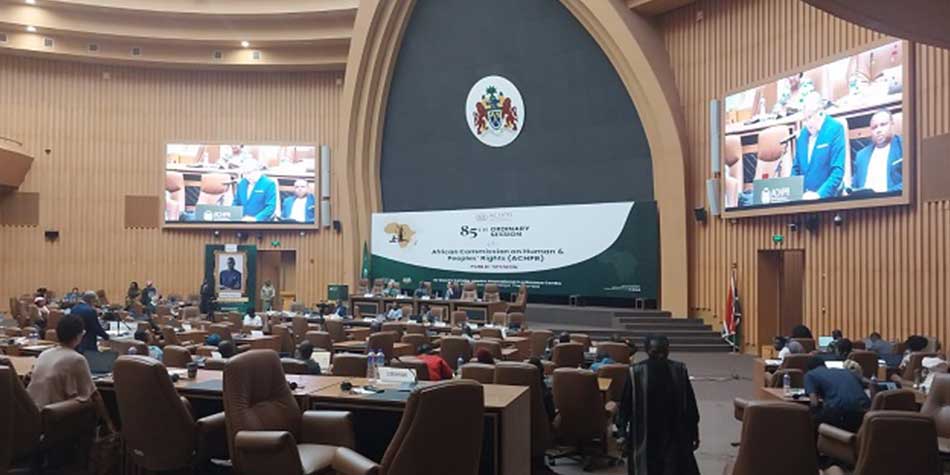
What China’s report to the United Nations tells us about transparency and the death penalty
Advocacy
Asia
In January 2024, China underwent its fourth Universal Periodic Review (UPR) by the UN Human Rights Council. While in all previous reviews, the death penalty was mentioned in the Chinese state report, nothing was reported this year.
Silence on the death penalty
In its 2014 review and in its 2018 report, China mentioned the death penalty to highlight progress made in the reduction of the number of crimes punishable by death: “In 2015, China passed Amendment (IX) to the Criminal Law, under which the death penalty was abolished for nine more crimes, in line with the abolition of the death penalty for 13 non-violent economic crimes in the 2011 Amendment (VIII) to the Criminal Law”. However, the expression “death penalty” does not appear at all in its 2024 report, despite several UN Member States having raised this issue in advance of the UPR session.
World Coalition’s member organizations also submitted information on the death penalty prior to the session, such as The Rights Practice, which highlighted the fact that “Since the third cycle UPR, judicial transparency in China has further decreased. In 2021, millions of court judgments were removed from China Judgments Online, an online database of decisions from all levels of Chinese courts. This included all judgments related to state security and all death penalty cases at the Supreme People’s Court review stage. China cannot claim to have reduced executions or improved criminal procedure while judicial secrecy continues.”
Amnesty International also stated that China continued to classify statistics for executions and death sentences as “state secrets”, but that thousands of people were believed to have been executed each year since the last review.
In total UN Member States made 19 recommendations related to the death penalty to China, including to further reduce the number of crimes punishable by the death penalty (Belgium and Chile) and to establish a moratorium on the death penalty (Argentina, Brazil, Colombia, Cyprus, France, Italy, Liechtenstein, Malta, Portugal, Romania, Slovenia and Spain) while the remaining recommendations focused on abolition and ratification of the OP2-ICCPR (Estonia, Iceland, New Zealand, Norway, UK).
During the Human Rights Council session of June-July 2024, China will announce if they accept these recommendations or not, but the chances of acceptance are extremely low, as China has never accepted death penalty related recommendations in past reviews.
Meddling at the UN
China is expert at controlling the information and during its UPR it went as far as to ‘gaslight’ international community. NGOs reported that “despite China’s efforts to lobby governments into repeating its own talking points and the constraining format of the meeting – which only allowed speakers a slot of 45 seconds -, at least 50 States made numerous, specific and detailed recommendations to Beijing on urgent issues. These included, among others, explicit calls to place a moratorium on or outright abolish the death penalty”.
Media also reported that “Four diplomats told Reuters that China’s mission at the United Nations in Geneva had been sending memos to envoys in the build-up to the review of Beijing’s record by the U.N. Human Rights Council. (…) Diplomats said that other countries sometimes tried to influence others’ statements at the U.N. council but that the scale of Chinese lobbying was exceptional.”
A State Secret to hide higher number of executions?
A recent study entitled “(Not) Talking about Capital Punishment in the Xi Jinping Era” assessed the ways and frequency at which the death penalty has been discussed in China in the Xi era. It focused on speeches made by China’s leaders, publications in China’s paper of record and scholarly articles in China’s largest academic database and found that in contrast to his predecessors, President Xi has not spoken directly of the death penalty in any of his 680 speeches. State media coverage of the death penalty has also declined since 2015, with the last reform on the number of crimes punishable by death.
Information is now more difficult to get than before. One of the few organizations that used to publish data on the death penalty in China, Dui Hua, has stopped doing so since 2018. And with the 2021 removal of court judgements online, research on the topic has been made even harder. This is not specific to the death penalty, but it does prevent the international community from measuring any progress made in China towards abolition of the death penalty.
It also raises the question of the reasons behind such secrecy. What if the number of executions was much higher than the current estimates of a few thousands a year? What if this number has actually been increasing over the last ten years, contrary to the global trend and to the Chinese government’s official policy of “Kill Fewer, Kill Carefully”? It would certainly explain why China did not address the issue during its last UPR.
Attached documents
Categories
China





